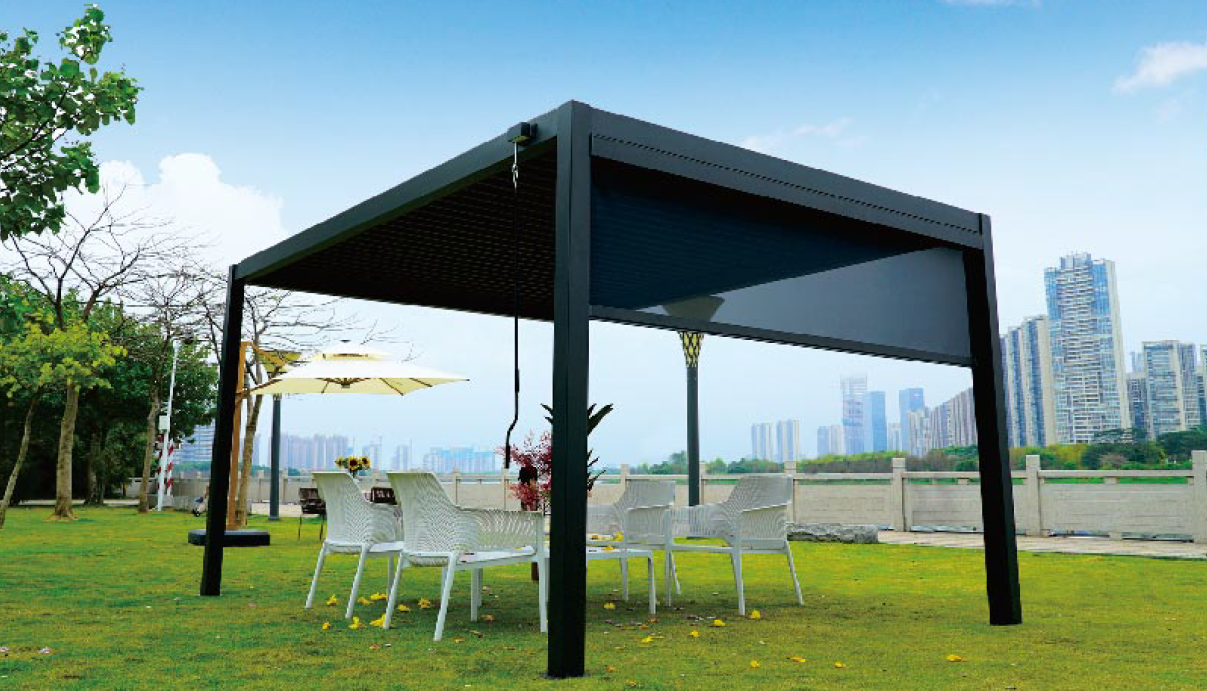Edit:Viewmate all-glass railing
Yes, but it depends on a few key factors:
Functionality & Practical Concerns
- Shade & Shelter: A very tall pergola (over 10-12 feet) will provide less effective shade or protection from sun and rain unless it’s paired with additional features like climbing plants, fabric, or a solid roof.
- Structural Stability: The taller a pergola is, the more it’s exposed to wind loads. This can require deeper footings, stronger posts, and sometimes bracing to keep it stable and safe.
- Lighting & Accessories: If you plan to hang lights, fans, or plants, a pergola that’s too tall might make these elements less effective or harder to access.
Building Codes & HOAs
- Some local building codes or homeowner associations (HOAs) restrict the maximum height of structures like pergolas, especially if they are close to property lines.
- Standard pergola height:
- 8 feet is common for residential spaces.
- 10 feet if you need to clear tall doors or want an airier look.
- Anything above 12 feet starts to feel oversized for most backyards unless it’s over a large area or connected to a large building.
A pergola that is too tall may:
- Provide less shade or shelter
- Look out of proportion with your house or yard
- Be structurally unstable in wind unless properly reinforced
- Violate local building codes or HOA rules
Ideal height for most pergolas is between 8 to 10 feet. Anything above 12 feet is usually considered too tall for a standard residential setting unless there’s a specific reason.
Why Pergola Height Matters
1. Functionality Issues
A very tall pergola may not serve its intended purpose effectively.
- Reduced Shade: The higher the roof, the more sunlight can enter from the sides, especially during morning and afternoon hours. This makes it less effective at blocking sun and heat.
- Poor Shelter: If your pergola is meant to provide some rain or wind protection (with vines, curtains, or a canopy), a tall structure lets more elements in.
- Hard to Access: A tall pergola makes it difficult to hang or maintain lights, fans, heaters, or hanging plants.
2. Structural Stability & Safety
Tall structures are more vulnerable to wind and need stronger construction.
- Wind Load Risk: Taller posts act like levers in strong winds, putting more strain on the base and joints. This increases the risk of movement, wobbling, or even collapse.
- Stronger Materials Needed: A taller pergola often requires thicker posts, deeper footings (concrete bases), and sometimes cross-bracing for support.
3. Aesthetics & Proportion
How a pergola looks in your space matters too.
- Out of Scale: If the pergola is much taller than nearby structures (like your house, fence, or patio), it may look awkward or “out of place.”
Lack of Definition: One of the benefits of a pergola is to define a cozy, intimate outdoor space. If it’s too tall, it loses that sense of enclo
Want to know more? Click here to contact me: View Mate All Glass Railing
Post time: Sep-26-2025






